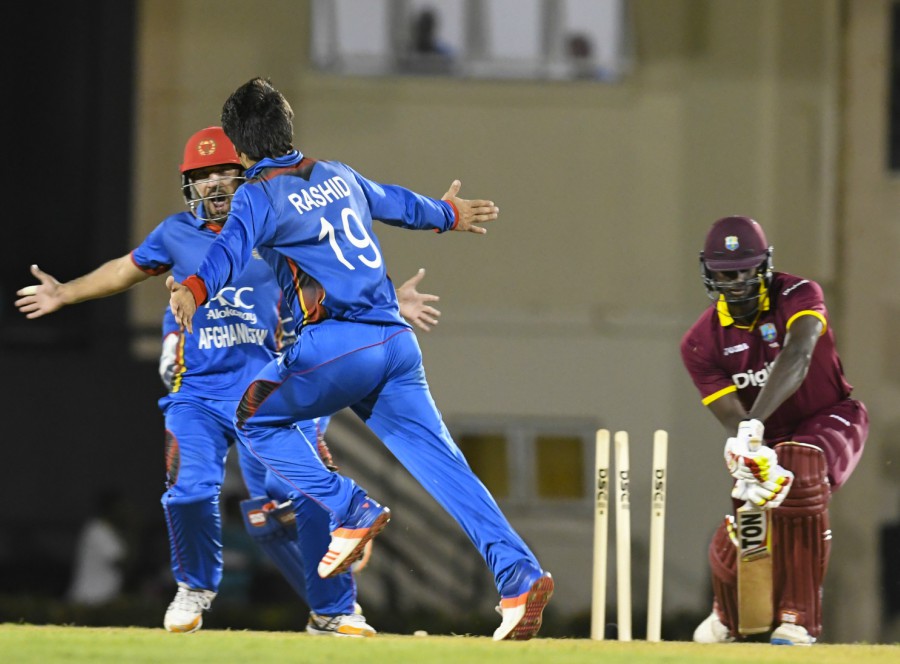By Avenash Ramzan
September 19, 2017.
A date forever etched in the history of West Indies cricket; a date no West Indian should be proud of.
A day, a game, a fate that even the unseen forces seem reluctant to accept, as play was delayed by a damp outfield despite the sun steaming down at Old Trafford.
Hours after the floodlights had been switched on and the stars dotted the night sky, doom, almost inevitably, had descended upon the sprinkling of islands that form the Caribbean.
No, this has nothing to do with the hurricane season; it’s about a mighty force being reduced, not surprisingly, to the sad state of minnows.
Two-time World Cup champions; three-time finalist; world beaters. Those are titles of the past. They appear so distant from the travesty that is commonplace these days.
But, it is what it is.
The loss to England in the first ODI- a brittle performance that has become the salient trait of a side stuck in reverse- means the West Indies now languish in a place that the Clive Lloyd-led World Cup champions of 1975 and 1979 would have never envisaged when they sat with grandeur at the pinnacle.

For the first time West Indies have failed to directly qualify for the 50-over World Cup, finishing outside the top eight sides on the ICC rankings as of the September 30, 2017, cut-off date.
West Indies (78 points) now cannot move ahead of Sri Lanka (86 points) in the rankings, irrespective of how their remaining four matches against England pan out.
That Lloyd and his teammates are still alive to witness this ignominy must be heart-wrenching, to say the least.
The painful reality is West Indies must now compete in a 10-team qualifier in 2018, where they will be joined by the bottom three sides in the ICC team rankings – Afghanistan, Zimbabwe and Ireland – as well as the top four sides from the ICC World Cricket League Championship and the top two sides from the ICC World Cricket League Division Two. The top two sides will complete the 2019 World Cup line-up.
“You always know there’s the potential of that [not qualifying direct], we knew it was going to be a tough ask,” said Toby Radford, West Indies’ batting coach. “But we are very positive as a group and are trying to develop in all formats. If it means the qualifiers next year, it means the qualifiers next year and we’ll build our way back up.”
The current predicament did not just drop out of the sky. ‘To be honest with you’, as Chris Gayle would so often say, Radford and Co. inherited it.
Years of players/administrators fallout, public spats, a sub-standard domestic competition, the lack of a sustained academy programme and tangible development initiatives are all contributory factors.
This latest snag does not in any way, form or fashion facilitate the ‘rebuilding effort’, a term that has been well entrenched in the familiar narrative being peddled ever since Australia took possession of the Frank Worrell Trophy in that infamous 1995 series.
Instead, it’s another hindrance to progress, another stumbling block, another setback, another sad tale of a dwindling cricket legacy.
The time for casting blame is no more. West Indies cricket is plummeting, and now more than ever administrators, players, regional leaders and all other stakeholders need to amalgamate and see beyond their respective agendas.
It’s about the bigger picture; it should always be that way. As the American writer Tahereh Mafi eloquently puts it, “Narrow-mindedness will only get you as far as nowhere, and once you’re there, you’re lost forever.”
The qualifiers provide an avenue to sneak in through the back door to the 2019 World Cup, but competing among the bottom tier does not in any way dispel fears of more heartache.
The fact that Zimbabwe, Afghanistan and Ireland have defeated West Indies in ODI cricket in recent times, and the latter two recently gained Test status, means qualifying for the main draw is not a foregone conclusion for the Caribbean side.
What is for sure though, West Indies cricket has endured another scar, one that is permanently engraved in its history.








